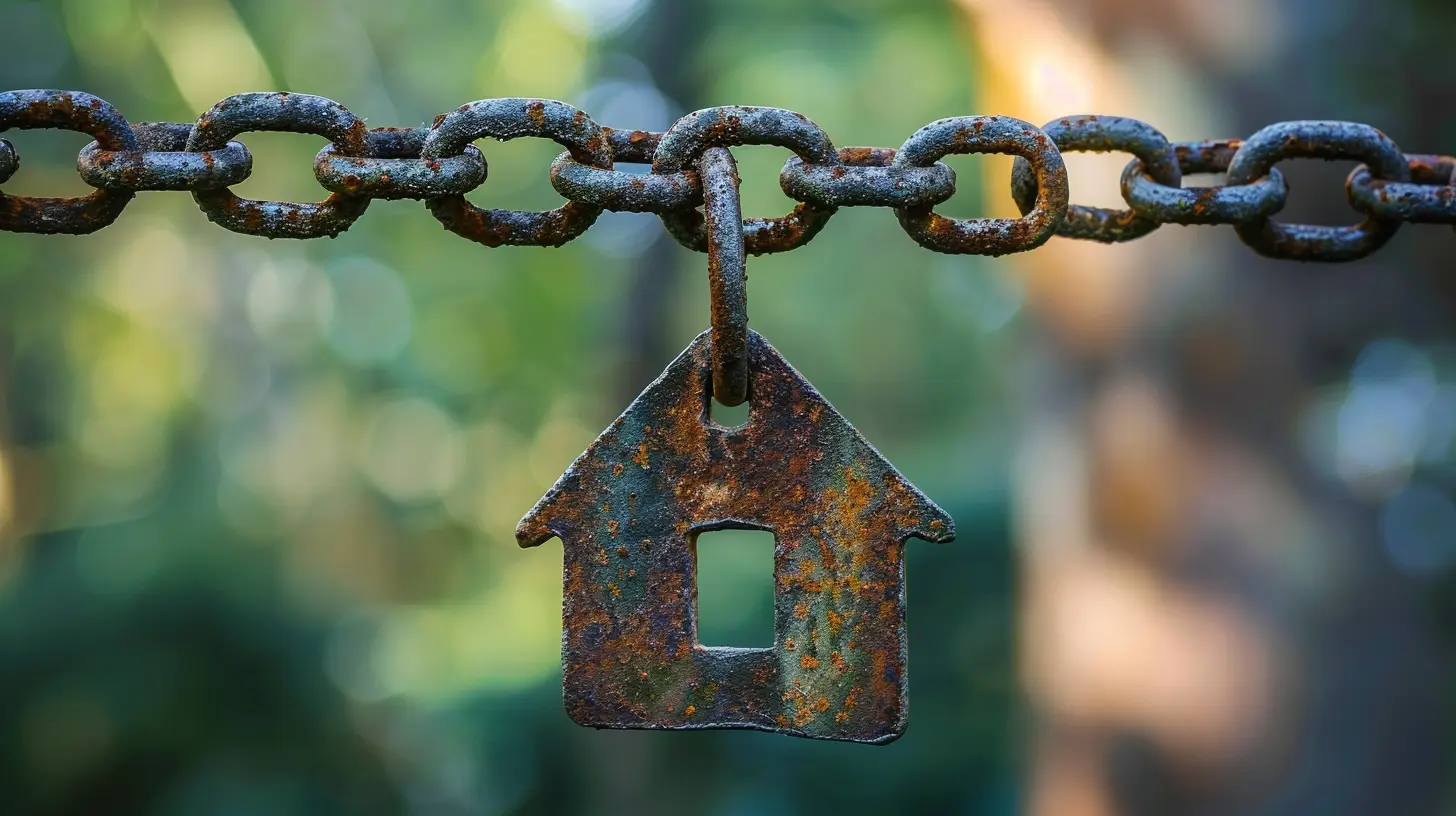Key Differences Between Pre-Foreclosures and Foreclosures
22 October 2025
When it comes to buying distressed properties, you’ll often hear two terms thrown around: pre-foreclosures and foreclosures. While they might sound similar, they are completely different stages in the foreclosure process. If you're an investor, homebuyer, or just someone curious about real estate, understanding the key differences between the two can save you from potential pitfalls.
But don’t worry—I got you covered. In this article, we'll break it all down in simple terms so you can make smarter real estate decisions. 
What is a Pre-Foreclosure?
A pre-foreclosure is the stage that occurs before a home officially goes into foreclosure. This happens when a homeowner has fallen behind on mortgage payments, and the lender warns them about a possible foreclosure if they don’t catch up soon.Homeowners in pre-foreclosure still own their homes, but they’re at risk of losing them. Lenders typically send them a notice of default, which is a formal warning that foreclosure is looming if the payments aren’t made.
Why Do Homes Go into Pre-Foreclosure?
Homeowners can end up in pre-foreclosure for various reasons:- Financial Hardships – Job loss, unexpected medical expenses, divorce, or other personal crises can make it hard to keep up with mortgage payments.
- Adjustable-Rate Mortgages (ARMs) – Rising interest rates can increase the monthly mortgage bill, making payments unmanageable.
- Poor Financial Planning – Some homeowners may have taken on more debt than they could handle, leading to missed payments.
What Happens During the Pre-Foreclosure Process?
1. Missed Mortgage Payments – Homeowners fall behind on their payments.2. Notice of Default (NOD) – The lender notifies the homeowner, giving them a chance to fix the situation.
3. Grace Period (Reinstatement Period) – The homeowner can catch up on payments, work out a loan modification, or sell the home to avoid foreclosure.
4. Potential Sale – If the owner decides to sell before the bank takes over, the home is listed as a pre-foreclosure sale, often at a discount.
During this phase, investors and buyers can step in to purchase the home directly from the homeowner, avoiding bank involvement. 
What is a Foreclosure?
A foreclosure happens when the homeowner fails to resolve their missed payments, and the lender legally repossesses the home. At this point, the homeowner has lost all rights to the property, and the lender now has control over its sale.Types of Foreclosure Sales
Foreclosures are typically sold in one of two ways:1. Auction (Trustee Sale or Sheriff's Sale) – The home is auctioned off at a public sale to the highest bidder.
2. Bank-Owned Property (REO - Real Estate Owned) – If the home doesn’t sell at auction, the lender takes possession and sells it through a real estate agent or online listings.
Once a home has reached foreclosure, the former owner has no control over it anymore—at this point, banks or the government handle the sale. 
Key Differences Between Pre-Foreclosures and Foreclosures
Now that we’ve covered the basics, let’s break down how pre-foreclosures and foreclosures differ in key areas:1. Ownership Status
- Pre-Foreclosure: The homeowner still owns the property and has a chance to fix the situation.- Foreclosure: Ownership is lost, and the lender (or auction buyer) takes control of the property.
2. Availability for Purchase
- Pre-Foreclosure: Buyers can negotiate directly with the homeowner, often securing a deal before the bank steps in.- Foreclosure: The home is either auctioned off or listed as an REO (Real Estate Owned) property by the bank.
3. Buying Process
- Pre-Foreclosure: Buyers typically deal with the distressed homeowner, negotiating a short sale or direct purchase.- Foreclosure: Buyers purchase at an auction or from the bank, often as-is with limited inspections.
4. Price Differences
- Pre-Foreclosure: Homes can be purchased at a discount, but prices may still be closer to market value.- Foreclosure: These are often sold at deep discounts, making them more appealing to investors.
5. Condition of the Property
- Pre-Foreclosure: Homeowners may still be living in the property, keeping it in decent shape.- Foreclosure: Homes are often vacant, neglected, or even vandalized by previous owners or squatters.
6. Risk Level
- Pre-Foreclosure: Lower risk, as buyers can inspect the home, negotiate with the owner, and do their due diligence.- Foreclosure: Higher risk, since foreclosed homes are often sold as-is, sometimes unseen, and may have legal or repair issues.

Which is Better: Pre-Foreclosure or Foreclosure?
The answer depends on your investment strategy and risk tolerance.Pre-Foreclosures Are Ideal If:
✔️ You want to negotiate directly with homeowners✔️ You're looking for a home with less risk and potential room for inspections
✔️ You have time to wait for a short sale approval
Foreclosures Are Ideal If:
✔️ You’re an investor searching for deeply discounted properties✔️ You’re comfortable buying homes as-is, often sight unseen
✔️ You understand the legal and financial risks involved
For first-time homebuyers, pre-foreclosures might be the better option because they allow for more flexibility and negotiation. But for seasoned investors, foreclosures can be golden opportunities for flipping or rental income.
Final Thoughts: Which One Should You Choose?
Both foreclosure and pre-foreclosure properties offer unique opportunities, but they come with different levels of risk and reward. If you're willing to negotiate with distressed homeowners and have time to work through a short sale, a pre-foreclosure might be your best bet.On the other hand, if you’re looking for bargain deals and don’t mind taking risks, foreclosed properties can be incredibly profitable investments.
Either way, always do your research, work with real estate professionals, and understand the risks involved before making a move. The last thing you want is to step into a financial headache instead of a smart investment!
all images in this post were generated using AI tools
Category:
ForeclosuresAuthor:

Travis Lozano
Discussion
rate this article
1 comments
Barrett Maddox
Understanding the nuances between pre-foreclosures and foreclosures can empower you as a buyer. Knowledge opens doors to opportunities—stay informed, stay positive, and let your real estate journey begin!
October 29, 2025 at 4:05 AM

Travis Lozano
Thank you for your insightful comment! Knowledge truly is key in navigating the real estate market.


